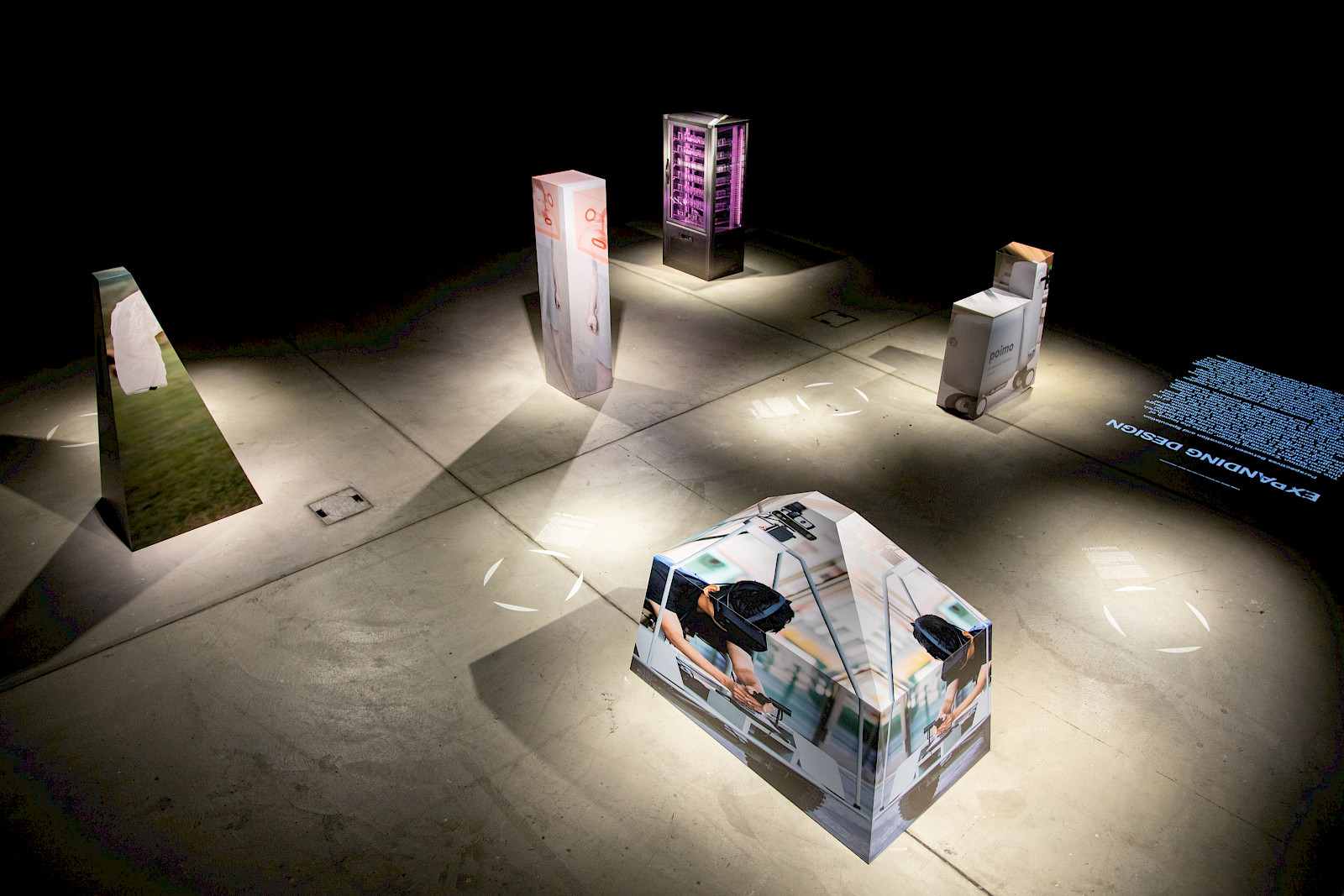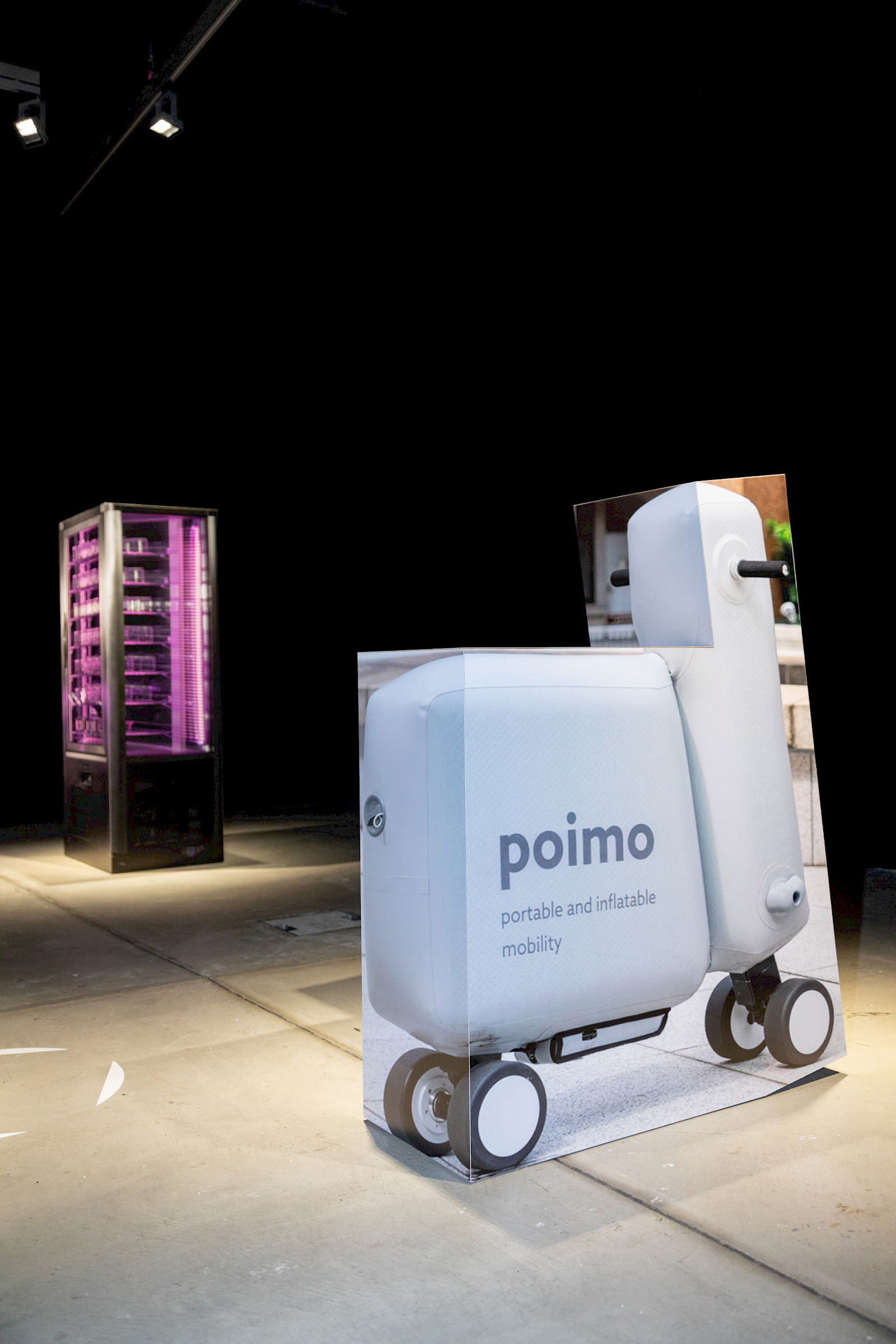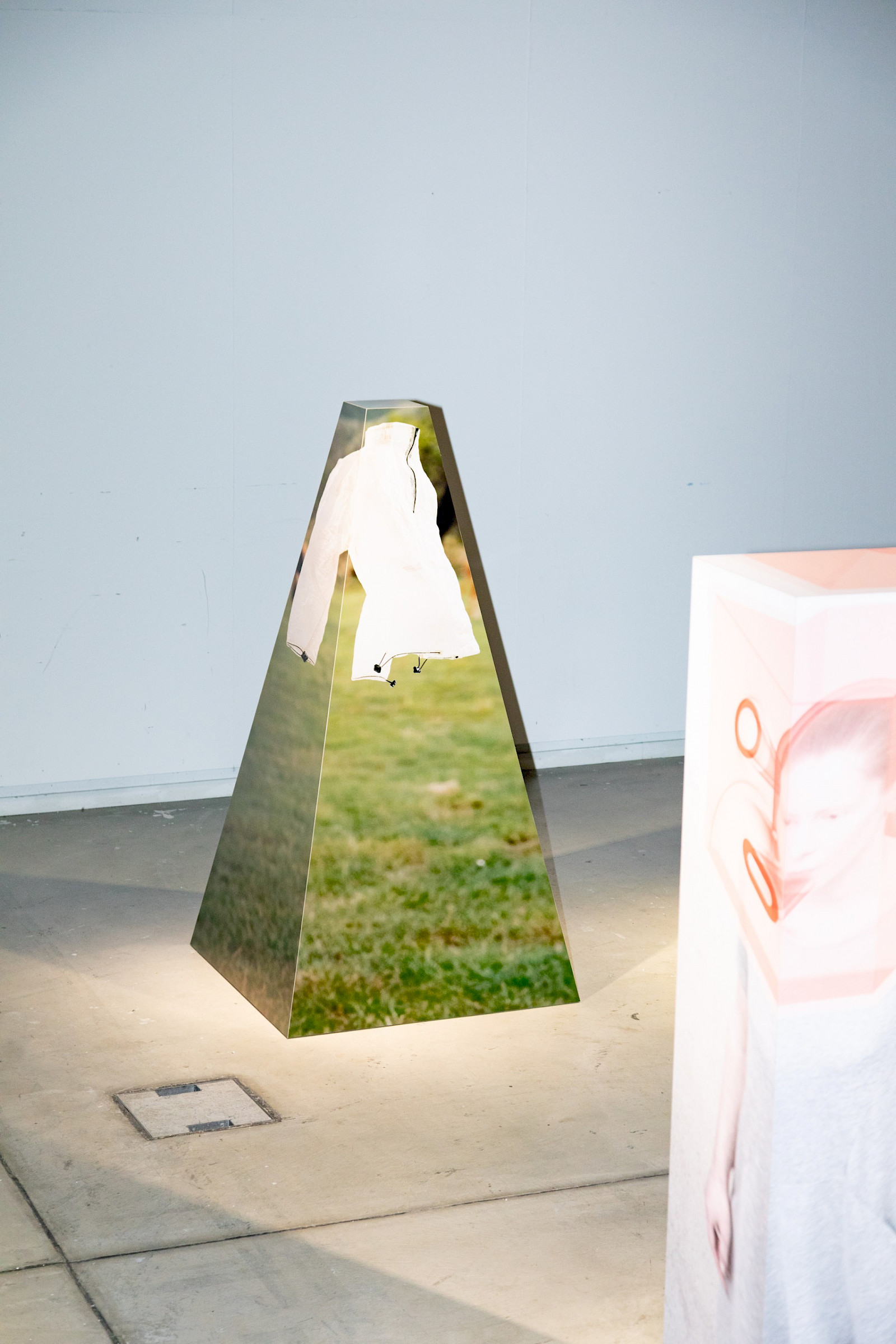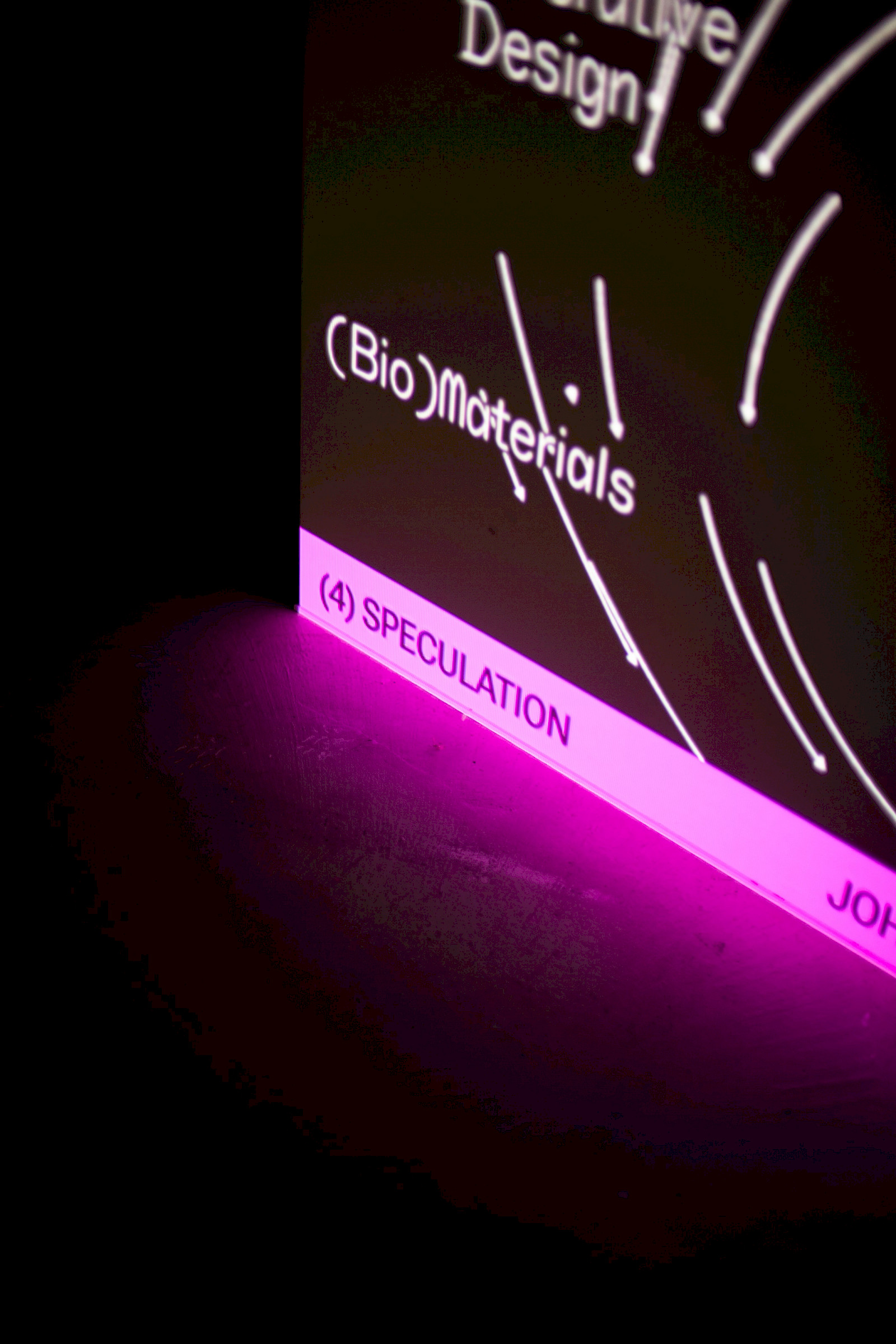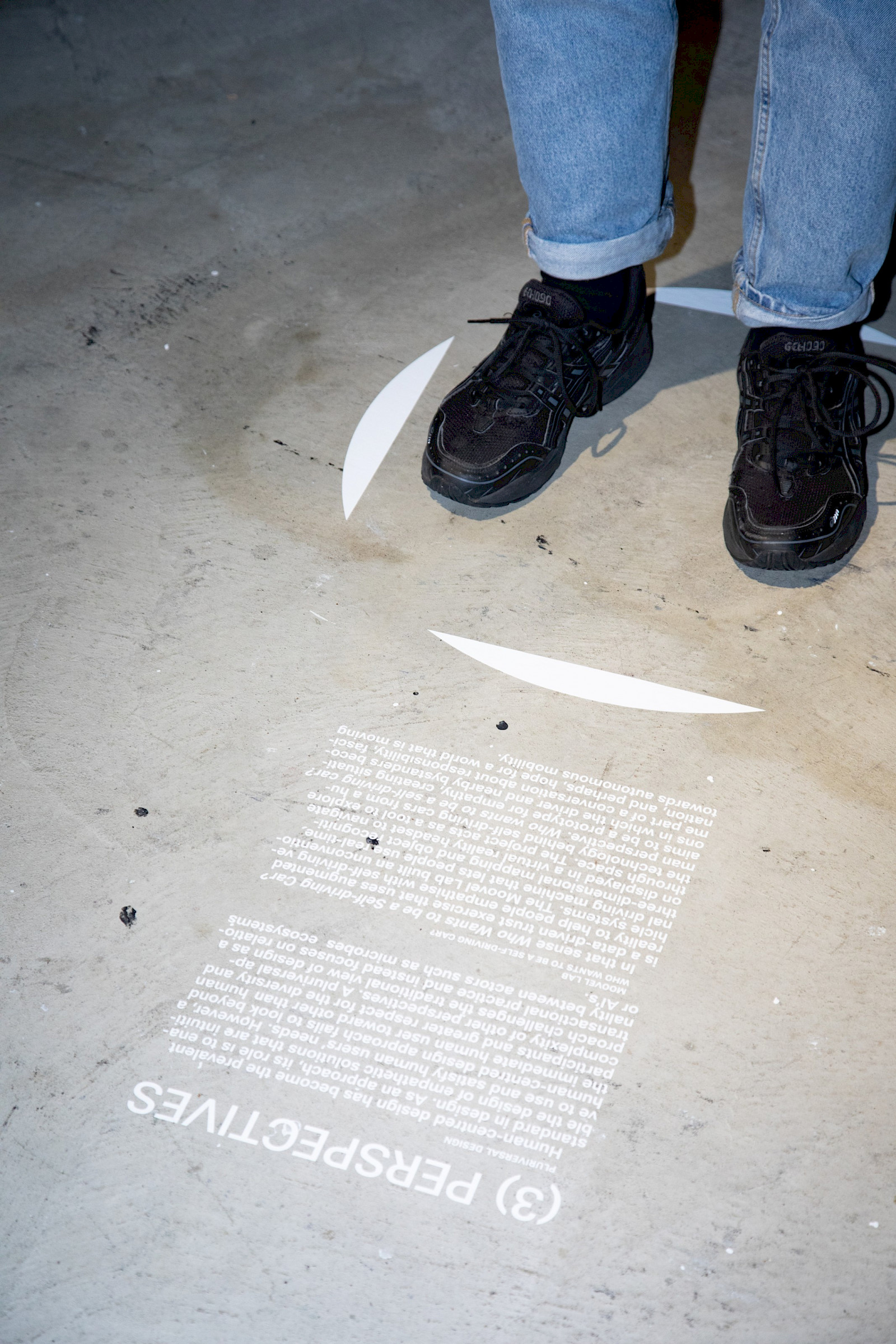Studium
The MA Industrial Design programme allows you to expand your professional practice to elevate your career and play a meaningful role in shaping technological, ecological and equitable futures. Driven by curiosity-based and practice-led exploration, the course is a platform for designers committed to creating future change today through experimental and innovation-led ways of working.
During your studies you will benefit from an interdisciplinary environment and diverse internal, external, local and international networks to expand your creative perspectives. As a graduate you will thus be able to navigate and shape a rapidly changing landscape of design through collective learning, sense–making and action.
Course Philosophy
“What if humans are a phase in the history of technology?”
– Bogna Konior on Stanisław Lem
Methods like design thinking, convenience-driven and human-centred design have become the prevalent standard in design. However, we are becoming increasingly aware of their limitations, hidden consequences, and the need to evolve our perspectives. By now it is pretty clear that the solutionist thinking of the last century is falling short to address current challenges caused by the lack of alternative ecological and social narratives – even further perpetuated by the unrelenting acceleration of technologies. Yet Designers are often still taught to frame every issue, no matter how complex, as a problem to be solved. Design needs to expand its viewpoint to evolve and adapt. The industry needs fresh impulses and inspiring ideas to shape the future through design. It needs designers to create future change today.
In the MA Industrial Design, we believe that designing for complex realities requires inclusive and optimistic approaches geared towards transdisciplinary exchange and collaborations. The programme aims to expand the industrial design practice beyond its own disciplinary limits and argues that the most transformative, innovative work is produced in the spaces between innovation and speculation, the present and potential futures, design to enable and design to envision. Our cohort-based course sets a stage for straddling both spaces, using design to bring seemingly different intents together and to propose new possibilities for products, interactions and aesthetics.
If you’re up for the challenge, join an inspiring community wanting to make its mark on the future.
Programme Structure (Major)
The Master's programme is a full-time course which runs over two academic years structured into four semesters.
During the first year, the focus is placed on improving your ability to engage in research and personal reflection, expanding your design and communication repertoire and building research knowledge in relation to your field of interest. In a series of set collaborative and individual projects, you will explore different design approaches, contexts and intents. All of the projects, methods and learnings in the first year are instrumental for building towards your own MA project and producing a body of work that reflects the professional context you wish to practice in.
At the start of the second year, you are expected to initiate your own thesis project and to decide whether it is aimed at design for innovation or design for speculation. Throughout the third and fourth semesters, you will become progressively independent. The final semester is entirely devoted to the implementation of your design project, completion of the written thesis and presentation of the work in an exhibition context. The course offerings will evolve each year to reflect the students’ practices and the changing nature of the design profession in response to the world around us.
Minor
A quarter of the course time is dedicated to the interdisciplinary minor programme. This programme sharpens writing skills and teaches research methods, design theory and methodology, digital research techniques, presentation skills and entrepreneurship. Students can also choose from a range of courses focused on future careers: applied and entrepreneurial (design as artefact), critical and speculative (design as statement) or communicative and reflective (design as reflection).
Career paths
Graduates of the MA Industrial Design programme step into senior and leading roles in industry, establish their own design practices, launch entrepreneurial ventures, or pursue academic career paths in research or teaching.
Application
The programme starts each autumn semester in September. For the next start in 2025, we are accepting applications until 3rd February 2025 (the application platform will open at the end of November 2024). The application requires, among other things, a portfolio, a letter of motivation and an outline of your research interests. Applicants must have a Bachelor's degree or equivalent in a design or design-related discipline (e.g. engineering, architecture, fashion, media arts). For general information about the application process, please contact Chahna Gottet, Programme Administrator. If you have any specific questions about the content of the programme, please contact Lukas Franciszkiewicz, Head of MA Industrial Design.
Detailed information on the application process can be found at zhdk.ch.
Further Information
MA Industrial Design
Interview with Head of MA
Major Minor
Application
Instagram
Head of MA programme Lukas Franciszkiewicz
